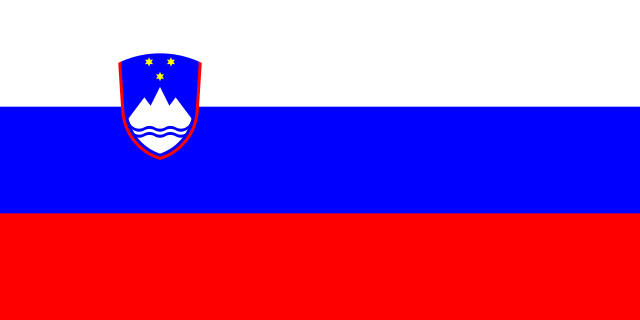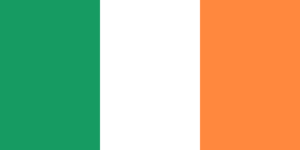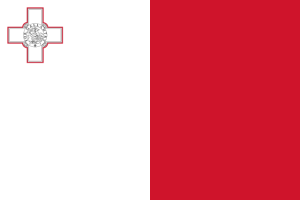Slovenia, surrounded by Italy, Austria, Hungary and Croatia, has a population of 2.1 million inhabitants. In 2019, 12,2% (N=120.626) of the Slovenian population had arrears on key commitments. The Slovenian Ministry of Economic Development and Technology holds the responsability for consumer protection. Out-of-court dispute settlement has been implemented in Slovenia with the Out-of-Court Resolution of Consumer Disputes Act.
Yet, Debt advice services are very uncommon and considered under-developed in Slovenia. The debt advice situation in Slovenia is defined as sporadic (Eurofound 2020). Consumer organisations reportedly provide some debt advice, but their capacities are not focused on these services and rather limited. A large share of debt advice is reliant on private lawyers and consultants and the most common procedure followed is personal bankruptcy.
The State of Slovenia provides various forms of assistance, including financial assistance and debt advice (exclusively by supporting NGOs).
Assistance is provided by public institutions, NGOs, private organisations, and individuals. Most public and non-governmental organisations provide their assistance and advice free of charge, as a kind of gift to those affected by over-indebtness associated with other needs. In private organisations and individuals, it is mostly on a fee-paying basis.
Citizens who need help because they are in financial need and/or in a state of over-indebtedness most often turn to social work centres. These are well-established, traditional institutions that provide support and counselling to individuals in a great variety of areas. The possibilities and forms of assistance available can also be found in structures that are closest to the people’s needs. These include NGOs, health services, employment agencies and some other public institutions. The Internet, rather competent acquaintances or friends also act as resources.
At the Social Work Centres, people with financial difficulties and people in debt are provided with basic information and formats of assistance available as part of the so called initial social assistance. Moreover, they are also given information on the types and formats of assistance available outside social work centres, mainly by non-governmental organisations.
The most common formats of assistance for the over-indebted available in social work centres:
- initial social assistance (monetary assistance)
- extraordinary social assistance (monetary assistance)
- subsidising accommodation rent
- social security benefits
- other social transfers
For individual debts concerning e.g. unpaid rent and other housing costs, overdue or current costs for the management of the flat and building, electricity bills, heating bills, food, etc., social work centres, within the limits of the legal possibilities and restrictions, grant extraordinary monetary social assistance to users of their services.
The Prelomi Institute
In addition, Social Work Centres refer their clients in financial difficulties and in debt to the Psychosocial Assistance in Financial Difficulties and Debt Programme, conducted by the Prelomi Institute. There they have access to counselling, planning solutions and coaching.
The Prelomi Institute’s programme aims to provide psychosocial support for their clients who face financial hardships and need to see their over indebtedness alleviated. They may also need to pay off one debt and do not know how to deal with this problem. They have access to advocacy services in the event they are facing pending or imminent eviction. On the top of the psychological support, they get at the Institute, individuals and their family members become aware of the causes of their indebtedness and its consequences. A plan is elaborated for them, and with them, to get out of their situation. To this end they receive guidance and support in the various procedures to undertake.
Social work centres also refer their clients to a variety of charities like Karitas, the Red Cross, Slovenian Association of Friends of Youth, etc. to have their individual debts, mothly bills ec paid.
Most often, also because of the scope of the work (social transfers, aid, subsidies, and certificates), the Institute cooperates with social work centres across Slovenia and with coordinators responsible for individuals living in communities of people with mental health problems.
In addition, regularly cooperates with sheltered houses, maternity homes, the Kings of the Streets Association, Stigma – an association for drug harm reduction, the Association for Non-violent Communication, the SOS telephone line, …. depending on analysis of the users’ co-morbid conditions, that go beyond the issue of indebtedness, but are the origin or consequence of it.
Moreover, as the programme often involves individuals with mental health problems, the Prelomi Institute cooperates with the Ljubljana Psychiatric Clinic.
In the review of documentation, collection and follow-up work, the Institute regularly cooperates with banks, courts, lawyers, attorneys, notaries, the Financial Administration of the Republic of Slovenia, the Market Inspectorate Services, the Land Registry, creditors (natural and legal persons) and health specialists (psychiatrists, doctors, etc.).
Depending on the Ministry of Justice, the district courts in Slovenia dispose of a bankruptcy department where it is possible to file in a petition for voluntary personal bankruptcy or bankruptcy of a company on the record. A bankruptcy petition can be filed by an individual. The purpose of personal bankruptcy is to relieve over-indebtedness for the individual. However, not all debts are discharged in bankruptcy proceedings (maintenance of family members, tax obligations, compensation, traffic, and other fines). These debts are still claimed by creditors.
Within the Ministry of Justice, the courts also apply an over-indebtedness regularisation measure, supervised by the Probation Board. The latter refers individuals to assistance organisations as to regularise their over-indebtedness. They are obliged to do it and the Probation Service reports about it to the court.
In event of criminal proceedings, plea bargaining – a kind of mediation in criminal proceedings – is possible in court between the party that incurred damage and the offender. In this bargaining procedure, with the help of a mediator, the debtor and the party that incurred damage can agree on the payment of the debt, either on more favourable terms for the debtor or by compensating the debtor with another measure.
The Association for Homeless People’s Self-Help and Self-help “Kralji ulice” (Kings of the Street) operates within the framework of NGOs. Their assistance is aimed at preventing homelessness, offering to subsidize rent, including to those who are in the process of eviction or who have been evicted.
Individual companies have the possibility to provide for solidarity assistance for the payment of debts as a measure taken by trade unions. Either the debtors have their individual debts settled by the union, or they are given the financial means to repay the loan, which they will return to the Union within an agreed lap of time, without paying an interest, and in instalments.
Information on financial literacy is being promoted by the following institutions:
Andragoški center Slovenije, ACS (SIAE, Slovenian Institute for Adult Education)
Founded in 1991 it is the leading public research and developement institute in the field of adult education. Their main mission is to develop the field of adult education in line with the Resolution on the Master Plan for Adult Education in the Republic of Slovenia for 2013–2020 and other national and European strategic documents and development guidelines on adult education.
https://www.acs.si/projekti/domaci/financna-pismenost-za-odrasle-2022-2024/
https://www.acs.si/aktualno/novice/vstopamo-v-drugo-fazo-projekta-financna-pismenost-za-odrasle/
https://financno.pismen.si/- Banka Slovenije (Bank of Slovenia)
Is the central bank of the Republic of Slovenia established in 1991. Bank of Slovenia is under exclusive state ownership, with autonomy in finances and governance. It collects, processes and makes public statistical data of importance to the functioning of the monetary and financial system.
https://www.bsi.si/
https://www.bsi.si/placila-in-infrastruktura/vprasanja-in-odgovori
https://www.bsi.si/placila-in-infrastruktura/pogosta-vprasanja-in-odgovori-o-kriptosredstvih
https://www.bsi.si/placila-in-infrastruktura/pregled-in-analiza-nadomestil - Združenje bank Slovenije (Bank Association of Slovenia)
It carries out the activities in the interest of its members relating to the banking and other financial activities. It organizes out-of-court settlements of consumer disputes (IRPS) related to the provision of banking services; It organizes professional training of staff for banking and other financial operations. It issues newsletters and other professional press.
https://www.zbs-giz.si/
https://www.zbs-giz.si/financno-opismenjevanje/ Zveza potrošnikov Slovenije (Slovene Consumers’ Association)
Was founded in June 1990. For many years, Bank of Slovenia has been providing a donation to the Slovene Consumers’ Association to support its consumer information and education activities by co-financing the costs of professional and research work. The cooperation on the basis of the donation, as well as on the basis of data exchange, is the basis for the preparation of articles and editing of content on banking services in the ZPStest magazine and for the collection, analysis and updating of data on the banking offer on the ZPS website.
As part of this cooperation the Slovene Consumers’ Association publishes Personal Finances a special supplement of the ZPStest magazine. They also publish contents on personal finances on their website, including market overviews, analyses of relevant products, and various educational and other topical articles.
https://www.zps.si/
https://www.zps.si/nasveti-in-vodniki?kategorija=15
https://www.zps.si/nasveti-in-vodniki/pred-najemom-kredita-preverite-podatke-v-sistemu-sisbon-2023-06-01
https://www.zps.si/nasveti-in-vodniki/kako-deluje-zastavljalnica-obiskali-smo-zastavljalnici-v-ljubljani-in-litiji-2022-11-24
https://www.zps.si/nasveti-in-vodniki/pozor-previdno-pri-sklepanju-kreditnih-pogodb-prek-spleta-2023-02-24
https://www.zps.si/nasveti-in-vodniki/5-vprasanj-o-osnovnem-placilnem-racunu-2023-05-31
https://www.zps.si/nasveti-in-vodniki/placilne-kartice-za-razlicne-namene-2023-05-04- Mednarodni inštitut za potrošniške raziskave (International Consumer Research Institute)
It deals with policies concerning the protection of consumers as well as the develoment of informatics supporting counselling and education of consumers. In cooperation with the Consumers’ Association they publish a variety of education publications targeting consumers and offering support to NGOs.
https://www.mipor.eu/ - Tertiary education institutions
University of Ljublijana
http://www.ef.uni-lj.si/cek/icef/finlab
University of Maribor
https://pef.um.si/raziskovanje-in-umetnost/projekti-iz-evropskih-skladov/na-ma-poti/
The website https://www.prelomi.si/ informs about financial planing, financial literacy, budget calculator and the international cooperation with ecdn. As a special task visitors of the website can check causes and triggers of their individual debt situation by a debt questionnaire. The website is available in English and Slovenian language. It is linked with the website of the European umbrella organization ECDN.



